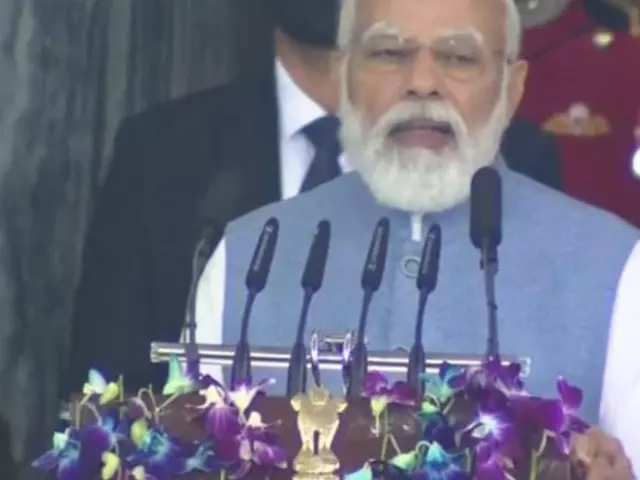Economic Progress: The Rise of India
When one thinks of modern India, the image that comes to mind is that of a rapidly growing economic power. Since independence, India has made significant strides in its economic development. In 1947, India was largely an agrarian economy, with very little industrial development. Today, India has a diverse economy with a strong manufacturing sector, a booming service industry, and an advancing agricultural sector. The GDP has increased manifold and India is currently the world's fifth largest economy by nominal GDP.
Innovation and entrepreneurship have flourished, and India is now home to a number of global corporations. The rise of the technology and IT sectors has placed India on the world stage. This economic transformation has not only improved the standard of living for many Indians but also created a thriving middle class. Indeed, the economic progress of India is a testament to its resilience and potential.
Educational Advancements: Knowledge is Power
The progress in the field of education in India since its independence cannot be underestimated. In 1947, the literacy rate was a mere 12%. Today, it stands at over 74%. The government's focus on education, especially after the Right to Education Act, has been instrumental in this transformation.
India has also made significant strides in higher education. It has established numerous universities and institutes of national importance, producing high-quality graduates who have made significant contributions both within the country and internationally. The quality of Indian education is acknowledged globally, with Indian students being sought after by universities around the world.
Technological Innovations: The Digital Revolution
India's technological advancement post-independence has been nothing short of remarkable. From being a country with limited access to technology, India has become a global hub for information technology and software services. It has a thriving startup ecosystem, with numerous unicorns (startups valued at over $1 billion) to its credit.
India has also made significant strides in space technology, launching numerous satellites and even a Mars mission. The digital revolution in India, driven by increasing internet penetration and smartphone usage, has transformed every facet of life, from banking to education to governance. The digital India initiative is further pushing the boundaries of this transformation.
Healthcare Improvements: Towards a Healthier Nation
Healthcare in India has undergone a significant transformation since independence. Life expectancy has more than doubled from 32 years in 1947 to 69 years in 2021. The eradication of diseases such as smallpox and polio is a testament to the efforts of the healthcare system.
India has also become a leading global player in the pharmaceutical industry, earning the moniker of the 'pharmacy of the world'. It supplies more than half of the global demand for vaccines. The country has also made significant progress in the field of medical research and healthcare delivery.
Political Stability: The World's Largest Democracy
India's political journey since independence has been a testament to its democratic values. Despite its diverse and complex social structure, India has managed to sustain a democratic system of governance. It has held regular free and fair elections, ensuring a peaceful transfer of power.
India's democratic structure has empowered its citizens, giving them a say in the country's governance. The political stability has also fostered an environment conducive to economic growth and development. The democratic structure has not only provided a platform for diverse voices but also played a critical role in maintaining the unity and integrity of the country.
Infrastructure Development: Building a Modern Nation
Infrastructure development in India has been phenomenal. From a country with rudimentary infrastructure at the time of independence, India now boasts of a vast network of roads, railways, airports, and ports. The growth of smart cities, the push for renewable energy, and the development of digital infrastructure are further testament to India's progress.
The infrastructure development has not only improved connectivity but also played a critical role in India's economic growth. It has played a pivotal role in the growth of commerce, facilitated urbanization, and improved the quality of life for its citizens.
Social Progress: Towards a More Inclusive Society
India's social progress since independence has been significant. The country has made strides in addressing social inequalities and promoting inclusive growth. Laws and policies aimed at social justice have empowered marginalized communities and promoted gender equality.
India's diverse culture and traditions have been preserved and celebrated, even as the country has modernized. It's a country where the ancient and the modern co-exist, making it a unique cultural melting pot. The social progress, while not without its challenges, has played a key role in shaping modern India.



